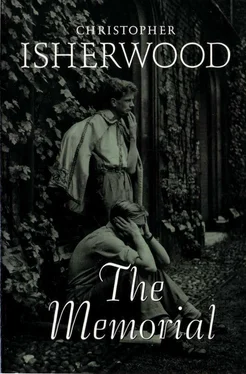Balefanio - tmp0
Здесь есть возможность читать онлайн «Balefanio - tmp0» весь текст электронной книги совершенно бесплатно (целиком полную версию без сокращений). В некоторых случаях можно слушать аудио, скачать через торрент в формате fb2 и присутствует краткое содержание. Жанр: Старинная литература, на английском языке. Описание произведения, (предисловие) а так же отзывы посетителей доступны на портале библиотеки ЛибКат.
- Название:tmp0
- Автор:
- Жанр:
- Год:неизвестен
- ISBN:нет данных
- Рейтинг книги:4 / 5. Голосов: 1
-
Избранное:Добавить в избранное
- Отзывы:
-
Ваша оценка:
- 80
- 1
- 2
- 3
- 4
- 5
tmp0: краткое содержание, описание и аннотация
Предлагаем к чтению аннотацию, описание, краткое содержание или предисловие (зависит от того, что написал сам автор книги «tmp0»). Если вы не нашли необходимую информацию о книге — напишите в комментариях, мы постараемся отыскать её.
tmp0 — читать онлайн бесплатно полную книгу (весь текст) целиком
Ниже представлен текст книги, разбитый по страницам. Система сохранения места последней прочитанной страницы, позволяет с удобством читать онлайн бесплатно книгу «tmp0», без необходимости каждый раз заново искать на чём Вы остановились. Поставьте закладку, и сможете в любой момент перейти на страницу, на которой закончили чтение.
Интервал:
Закладка:
She looked at her watch, leant forward:
"I think we shall be just in time, after all," she said to Mr. Vernon, being careful to pronounce the words very distinctly.
"What?"
He did not say What, but Whuh—this being an easy example of the grunt-language, unintelligible to almost everybody but Kent, Lily, Eric, Mrs. Beddoes and Mrs. Potts—in which he now
spoke, partly through infirmity, partly through laziness.
"I don't think we shall be very late, after all," said Lily.
Mr. Vernon gave his affirmative grunt. He smiled widely. He didn't care whether they were late or not.
And looking at him with tenderness, Lily well understood the admiration of Mrs. Potts and Mrs. Beddoes. She thought of his early travels. He had been all over Europe and to the East Indies and to America. He was never seasick—once, off Norway, the captain had challenged him to an endurance test—platefuls of cold mutton-fat—and lost. And on another occasion the whole crew had apologised to him next morning for feeling ill. He had proposed to Mamma seven times. He had played village cricket. Had spoken at the opening of Zenana mission bazaars. Had been a J.P. Had met Ford Madox Brown in Manchester and invited him over to see the tapestry. To Lily, he represented now the whole of the past—for Mamma was dead, Richard dead, her aunt dead—all that she loved and looked back to with regret.
But Papa could never have really understood Richard. She forgave him that. For nobody had understood Richard but herself. That was her pride and her consolation now. He should have been sent to Oxford or Cambridge and become a don, instead of going to Owens College and into
that solicitor's office. Richard had never cared much for being a solicitor. His talents were quite wasted.
Nevertheless, some of the happiest hours of their married life had been spent in museums, libraries, churches. Richard developed tastes which must have been latent all the time. He began to sketch. He became good—better than herself. She was so proud of his work and showed it to everyone who came to the house.
Outside the park gates the village began almost at once, with the hideous new pink brick villas they were building. Most of them were bungalows. The windows were decorated with chessboard panes of stained glass; flowers and fruits. And if you looked inside you were confronted with an awe-inspiring varnished contraption of drawers, brackets, fretwork and looking-glasses, a super-sideboard, covered with photos and fancy china bearing the arms of seaside towns. How do these people live? thought Lily, with a shudder. Where is the romance? They passed the Ram and began to clatter on the setts. She went back to her reflections. The village street opened ahead, two lines of plain dark Midland houses, a few small sweetshops, pavement, lamp-posts, no trees, the mill against the sky. Suddenly, an idea which had been in Lily's head for a long time seemed confirmed. Darling Eric. He must fulfil what Richard would have wished. He must be a don. Everyone told her that he was so
clever. His History master felt sure that he would get an entrance scholarship to Cambridge. Of course. How delightful that would be. How happy it would make Richard. And Lily saw herself walking with her son, arm-in-arm, along the most beautiful part of the Backs, where the trees are like ferns. He was wearing a gown and a white silk hood, and the college bells were ringing. Her eyes brightened with tears at the picture. And, because she couldn't describe it to him then and there, she leant forward and asked, smiling:
"How are you getting on with that book you've got to read, darling?"
The book was Pollard's Factors in Modern History. Eric had got it and several others to read during these holidays. Lily had looked into it a day or two before and had asked Eric to read some aloud to her. It helped his stammering. She couldn't follow very much of it—the author seemed always to be alluding to things she hadn't heard of. She began to realise that History meant different things to different people. She'd always thought she knew a good deal herself. There was a time when she could have told you how all the English kings were related and who they married and the names of most of their children. But Lily took a great pleasure in hearing Eric read the Factors, for it was all History, and how clever Eric must be to understand it.
When she addressed him now, he looked up, so
grave and preoccupied, with his ugly hands folded on one knee. It was easy to imagine him meditating in a study. He had been startled out of his thoughts.
"Oh, all r-right."
His answer was rather curt, very different from, the way in which he usually spoke to her, but Lily did not notice it. Already she was back again in the past. She had almost forgotten him. They were passing the mill, with its rows of blank windows, high above them. And now they were at the canal and looking down into the lock, the water so black and deep down, and the tall weedy gates letting through no more than a trickle. Lily had come up here to sketch while she was engaged. It made a beautiful water-colour. The bar of the gates, black and white, standing out against the distant hills, and the barge coming down with scarlet hatches, and the slope of the ground spreading away from you—the woods just below and the church tower showing. That picture had been one of Richard's favourites. They had had it up in the dining-room of their little house in Earl's Court all the time they were married.
"I should think we'd better sit at the back, today," said Lily to Mr. Vernon. "It won't be so far for you to walk; and there's sure to be a crowd."
Mr. Vernon smiled, grunted, nodded.
But immediately it occurred to Lily: I should hate people not to see him. The Squire. Lily felt a
tremendous loyalty to John as the Squire. He represented the Hall. There was a great deal of Socialism in the village, she had heard, since the War. Chapel Bridge had always had a tendency to Socialism. Lily had come to think of certain people as loyal to Papa and others as not loyal. Mr. Askew, who kept the paper-shop, was loyal. Mr. Hardwick, the bank manager, was loyal. Mr. Higham, the grocer, though polite to Papa's money, was not loyal. Lily remembered how good Mamma had always been to the people of Chapel Bridge, and it made her furious to think that these people or their children could repudiate the leadership of the Hall in the village life. But the fact was, the village was no longer a village, but a suburb. Rich men lived there, who went into business every day in quick trains to Manchester. Most of them had made money in the War. Lily could hate these people passionately.
But now they were stopping at the church. A great many people were standing round the door and in the churchyard. They were just going in.
"You let me get out first," she said to John, as she always did. As if she thought he might spring from the carriage and help her to alight.
Eric was out already. And now Mr. Hardwick, wearing a very high collar, was unctuously coming forward to give Mr. Vernon his arm.
"Good morning, sir. Good morning, Mrs. Richard." His tone was discreetly melancholy.
"One might say that this weather was quite ideal. Allow me. Thank you."
He was used to steering Mr. Vernon from the carriage to his seat in the bank office, where he was frequently informed tactfully of an overdraft,; and the extraordinary violence with which John left the victoria did not break his wrist. Kent brushed some cigar ash from his master's coat, quite unaware that he was making the same noises as when he groomed the horse.
John shuffled up the path to the church door on Mr. Hardwick's arm. Lily and Eric followed. Several people raised their hats with discreet respect. Lily felt resigned to their sitting at the back now that she saw what a lot of people had come. If they didn't, they would never get out for the dedication at all.
Читать дальшеИнтервал:
Закладка:
Похожие книги на «tmp0»
Представляем Вашему вниманию похожие книги на «tmp0» списком для выбора. Мы отобрали схожую по названию и смыслу литературу в надежде предоставить читателям больше вариантов отыскать новые, интересные, ещё непрочитанные произведения.
Обсуждение, отзывы о книге «tmp0» и просто собственные мнения читателей. Оставьте ваши комментарии, напишите, что Вы думаете о произведении, его смысле или главных героях. Укажите что конкретно понравилось, а что нет, и почему Вы так считаете.





